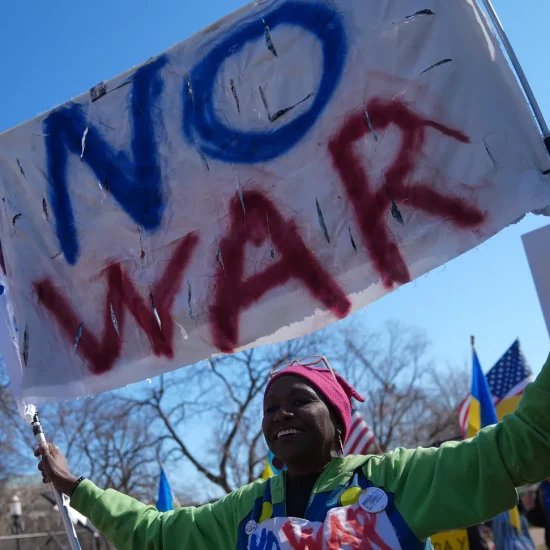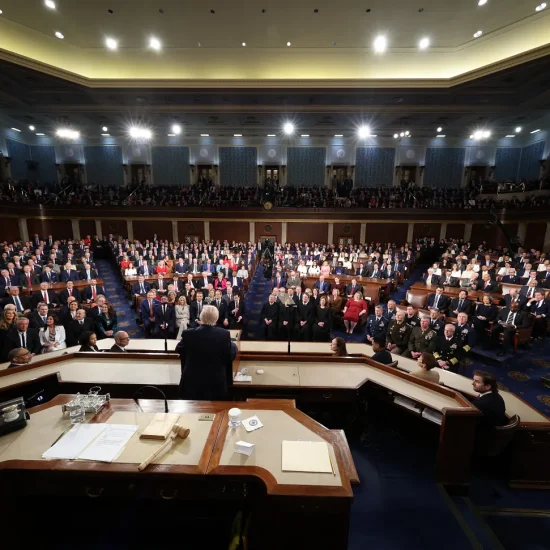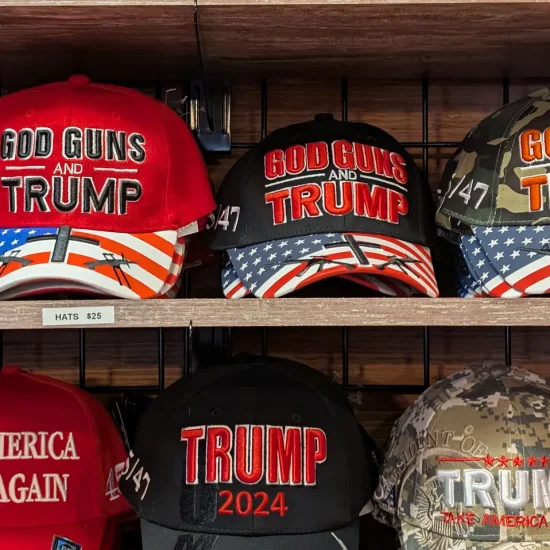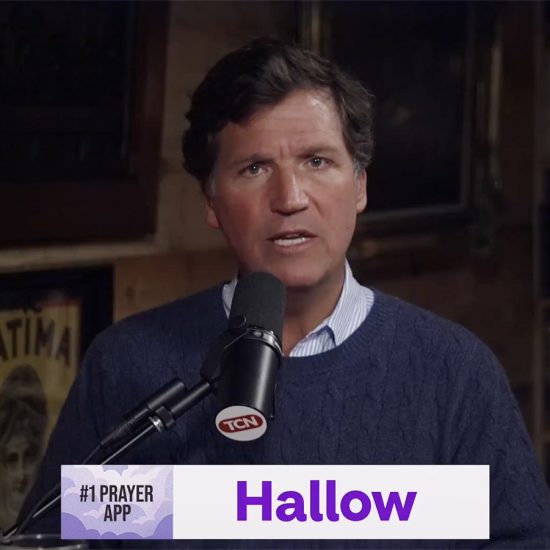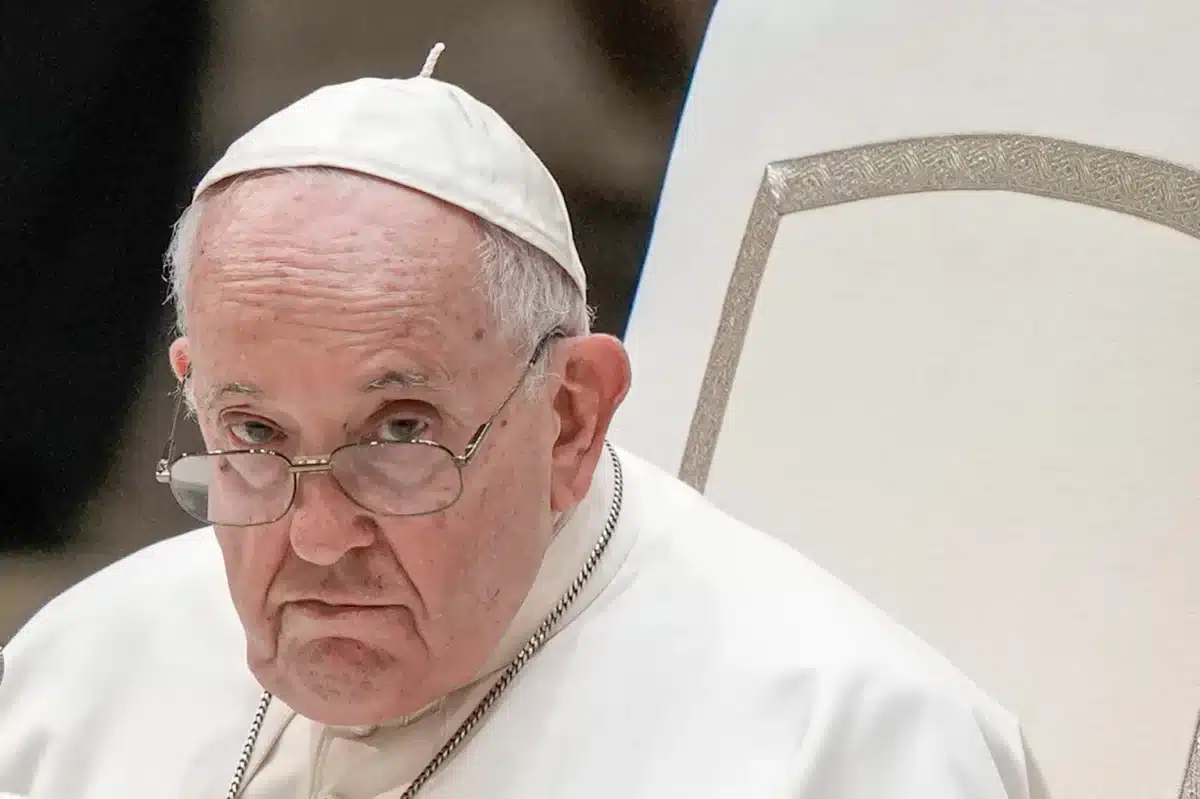
(RNS) — Last month, when Pope Francis’ comments appeared accusing some American Catholics of harboring “a very strong, organized, reactionary attitude,” many in the faith and even some political junkies took his meaning. What was less certain was just who, exactly, Francis was referring to.
Francis made the comments in a forum with a group of Portuguese Jesuits on his visit to Lisbon in early August, when a priest who had recently been to the U.S. said he encountered many critics of Francis. The pope agreed that some Catholics in the U.S. exhibit “backwardness” and warned that at times “ideologies replace faith.”
Overall, U.S. Catholics skew more liberal than many other religious groups — or, in some cases, Americans in general — on same-sex marriage, contraception, abortion access, and other social issues. They also overwhelmingly support Francis: Pew Research has found that the share of Catholics who hold a favorable view of the pope hovers around 83%.
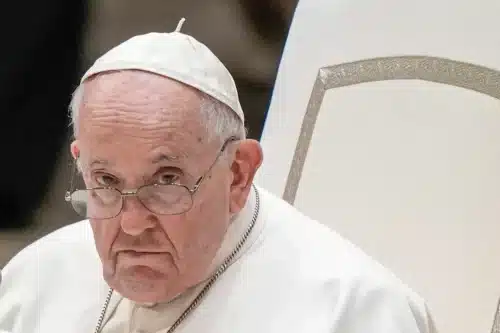
Pope Francis attends his weekly general audience in the Pope Paul VI Hall at the Vatican, Aug. 23, 2023. (AP Photo/Andrew Medichini, File)
But a vocal subset of conservative Catholics consistently voices consternation about the pope’s views on everything from divorced Catholics to pro-choice politicians receiving Communion to the pontiff’s emphasis on issues other than abortion to his attention to climate change. While not all have singled out the pope himself, they’ve frequently opposed many of his messages.
“Some of this is about the faith, and what is true and how do you share it,” John Carr, founder of the Initiative on Catholic Social Thought and Public Life at Georgetown University, told Religion News Service. “Some of it is about power — ecclesial, political, and economic power. Pope Francis is a threat to the status quo in all those areas.”
If this is what Francis was talking about, however, it doesn’t explain the who. Carr wouldn’t speculate, and several Catholic writers from across the ideological spectrum expressed frustration last week about the vagueness of the pope’s comments. Francis didn’t exactly clarify things when asked about the matter while flying to Mongolia. “Yes, they got mad,” Francis told a reporter, according to Crux. “But move on, move on.”
Before we move on, a few personalities on the Catholic scene whom Francis may or may not have had in mind:
Bishop Joseph Strickland
Strickland, head the small Diocese of Tyler, Texas, has used social media to stake out a starkly right-wing stance, opposing the administration of COVID-19 vaccines and video-ing into the Jericho March in Washington, D.C., in December 2020, an event seen as a precursor to the attack on the U.S. Capitol a few weeks later. His prayer was comparatively tame, but — along with his Twitter feed — irked fellow clerics who saw a Catholic prelate on the same program as InfoWars conspiracy theorist Alex Jones. In November 2021, Strickland was privately chastised at a U.S. bishops’ conference meeting.
In June 2023, after Strickland published a post on X (formerly Twitter) accusing Francis of “undermining the Deposit of Faith” — the core of the Catholic faith — it was revealed that Strickland and his diocese were subject to an apostolic visitation, a rare disciplinary investigation by the Holy See. Yet Strickland pressed on, issuing a defiant pastoral letter in August in which he claimed an “evil and false message” has “invaded” the church in the Synod on Synodality, which meets in Rome next month.
Raymond Arroyo
The news director for Eternal Word Television Network who moonlights as an occasional Fox News host, Arroyo regularly gives air time on his show “The World Over” to Francis critics such as Archbishop Carlo Maria Viganò, the former papal nuncio in the U.S.; Cardinal Raymond Burke; and former Trump adviser Steve Bannon. As a frequent guest on Fox News, Arroyo has gone further, mocking a Vatican official who contracted COVID-19 despite having had a vaccination and booster.
Since joining EWTN in 1996, Arroyo has been instrumental in the network’s evolution from a place for affable, if firmly conservative, religious programming to a channel that includes politically charged commentary. Pope Francis is widely believed to have criticized the group in the past: When asked by a reporter in 2021 about those who take issue with his papacy, Francis referred to a “big Catholic television station that continually speaks poorly about the pope,” calling it “the work of the devil.”
Tim Busch
While not necessarily an outspoken critic of Francis, Tim Busch has long been known as a central figure in more established circles of conservative U.S. Catholicism — circles that have become increasingly resistant to Francis’ message.
The founder and CEO of the Pacific Hospitality Group, a hotel and resort company, Busch endowed the Catholic University of America’s business school with the largest donation in the history of the school, and he recently said that “the capitalist culture is consistent with the virtues of Catholicism.”
A prominent conservative philanthropist who once sat on EWTN’s governing board, Busch also is the co-founder of the Napa Institute, an organization whose website say it is “empowering Catholic leaders to renew the church and transform the culture.” In practice, the institute hosts conferences that bring together Republican politicians such as former Attorney William Barr and former Vice President Mike Pence with business leaders and Catholic Church officials. In the past, Busch has defended its mission, saying it is not “some sort of master plot to overthrow the papacy.”
He has been tied to Viganò, particularly a public letter the archbishop published in 2018 claiming Vatican officials helped cover up accusations that disgraced American prelate Cardinal Theodore McCarrick had sexually abused seminarians. Viganò argued Francis knew about the allegations years before they were made public, although a 2020 Vatican investigation on the matter was seen to absolve Francis of blame. The New York Times reported at the time that Busch consulted with Viganò on the letter before its publication in an EWTN-owned outlet, a charge Busch has repeatedly denied (the Times stands by its reporting).
Michael Voris
Michael Voris, the founder and president of Church Militant, a Catholic media outlet that has been accused of racism and homophobia, also anchors “The Michael Voris Show,” a web-based video that accused the U.S. Conference of Catholic Bishops for profiting from human trafficking (a critique of the bishops’ helping migrants at the border) and generally “destroying America by promoting Marxist communism.”
Voris has aligned with right-wing political figures such as Bannon and Milo Yiannopoulos, a sometime ally of Marjorie Taylor Greene, who has also attacked the pope. In 2021, Voris invited Bannon and Yiannopoulos to speak at a protest against the USCCB’s fall meeting in Baltimore, prompting an unsuccessful lawsuit from city officials, who feared the protest would incite violence.
Nick Fuentes
At the far right end of the Catholic spectrum is Fuentes, a young Catholic influencer known for espousing Christian nationalist, antisemitic, and white supremacist views. He heads America First, a movement primarily populated by young men and whose attire was by rioters spotted on the Senate floor during the Jan. 6 attack on the U.S. Capitol. While Fuentes is regarded as an extremist outsider, he has found political boosters in U.S. Reps. Paul Gosar, an Arizona Republican, and Greene, who have spoken at America First gatherings. (Greene later distanced herself from the organization.)
Fuentes, who has called for “Catholic Taliban rule in America,” made his biggest splash when he dined last year with former President Donald Trump at Mar-a-Lago in the company of Ye, the rapper formerly known as Kanye West.

